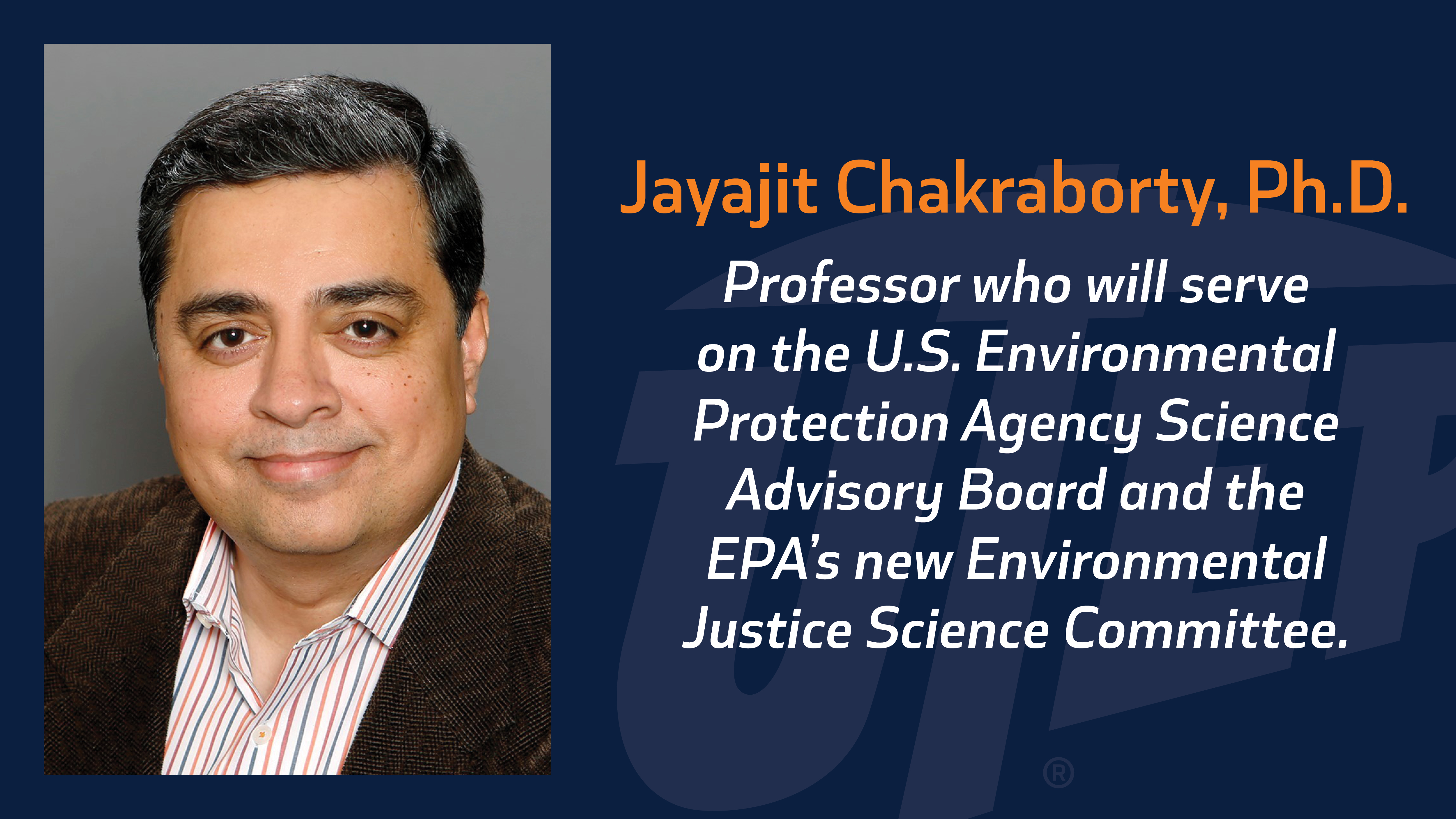
EPA Selects UTEP Professor for Advisory Board
Last Updated on September 23, 2021 at 12:00 AM
Originally published September 23, 2021
By Daniel Perez
UTEP Communications
The U.S. Environmental Protection Agency (EPA) recently announced its selection of The University of Texas at El Paso’s Jayajit Chakraborty, Ph.D., to serve on the EPA Science Advisory Board (SAB) and the EPA’s new Environmental Justice Science Committee.

SAB is a federal advisory committee that provides the EPA administrator with advice and recommendations on environmental health science, climate change, engineering, economic and environmental justice issues. SAB members’ scientific and technical expertise, academic experience and innovation play critical roles in the success of the agency's approach to environmental protection. The committee’s guidance is essential to the EPA’s ability to protect public health and safeguard the environment.
Chakraborty is a professor in the Department of Sociology and Anthropology, and the founding director of UTEP’s Socio-Environmental and Geospatial Analysis Lab, which conducts collaborative and multidisciplinary research on social and environmental sciences. His ongoing research projects focus on analyzing environmental hazards, risk burdens and health impacts that affect socially disadvantaged and vulnerable communities. His three-year term begins Sept. 26, 2021.
“I am honored to be selected to serve the EPA and contribute to environmental policy at a time when climate and social justice concerns have become increasingly important,” Chakraborty said. “I am also looking forward to serving on the newly created Environmental Justice Science Committee whose mission aligns closely with my own research and teaching at UTEP.”
EPA Administrator Michael S. Regan lauded the qualifications and diversity of the distinguished SAB members who are non-EPA scientists, engineers and economists. This group of 25 men and 22 women, which includes 16 people of color, are nationally and internationally recognized experts in their fields.
“Now we can move forward knowing EPA’s work is guided by the most credible, independent expertise,” Regan said.